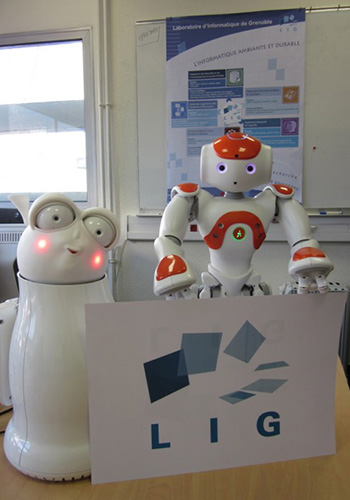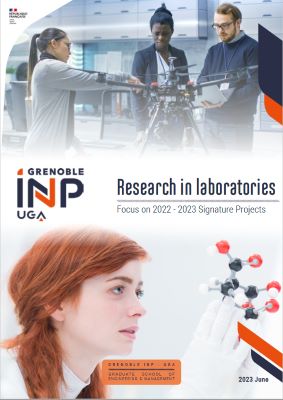The MAGMA team at the LIG is working on the role of artificial intelligence in companion robots. The goal of creating interactive and intelligent systems is to maintain long term relationships with users. Companions can fall under two categories: virtual persons or social robots. On the MAGMA team, researchers are "working with robots to enable them to carve out a real place in our daily lives." highlights Sylvie Pesty, a researcher at the LIG.
The MoCA project (MOn petit monde de Compagnons Artificiels) focuses on the study of companion robots designed for specific situations. "This year we are finishing our case study of children who are alone at home after school. The idea is not to replace human presence, but rather for artificial companions to provide children with suggestions on how to pass time or what action to take in case of an emergency." adds Sylvie Pesty. The project, which is funded by the ANR, brings together four laboratories (Lab STICC in Brest, LIMIS in Orsay, LTCI in Paris and LIG in Grenoble) that are working on personalizing companions and giving them the characteristics they need to develop relationships.

The MoCA project (MOn petit monde de Compagnons Artificiels) focuses on the study of companion robots designed for specific situations. "This year we are finishing our case study of children who are alone at home after school. The idea is not to replace human presence, but rather for artificial companions to provide children with suggestions on how to pass time or what action to take in case of an emergency." adds Sylvie Pesty. The project, which is funded by the ANR, brings together four laboratories (Lab STICC in Brest, LIMIS in Orsay, LTCI in Paris and LIG in Grenoble) that are working on personalizing companions and giving them the characteristics they need to develop relationships.






